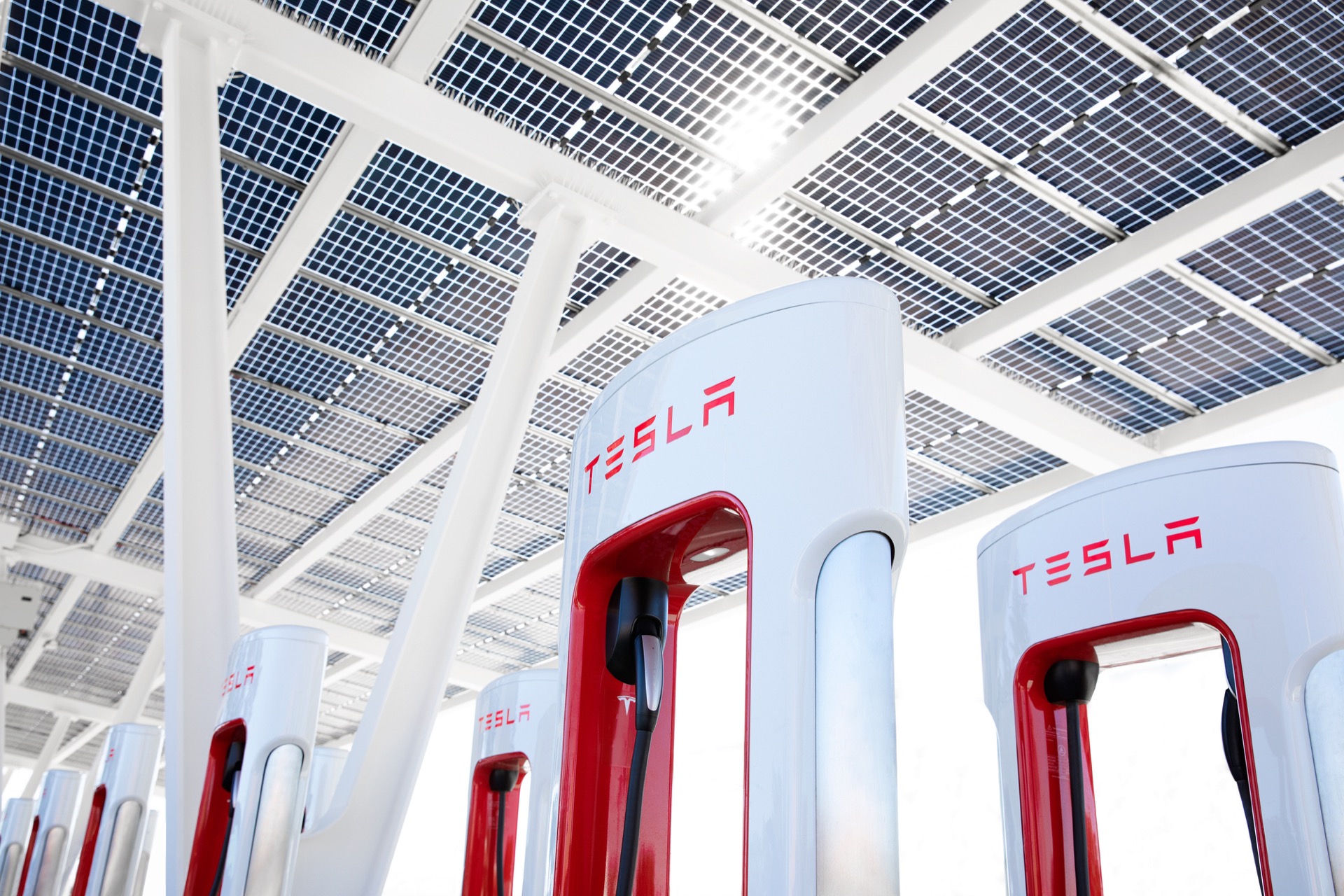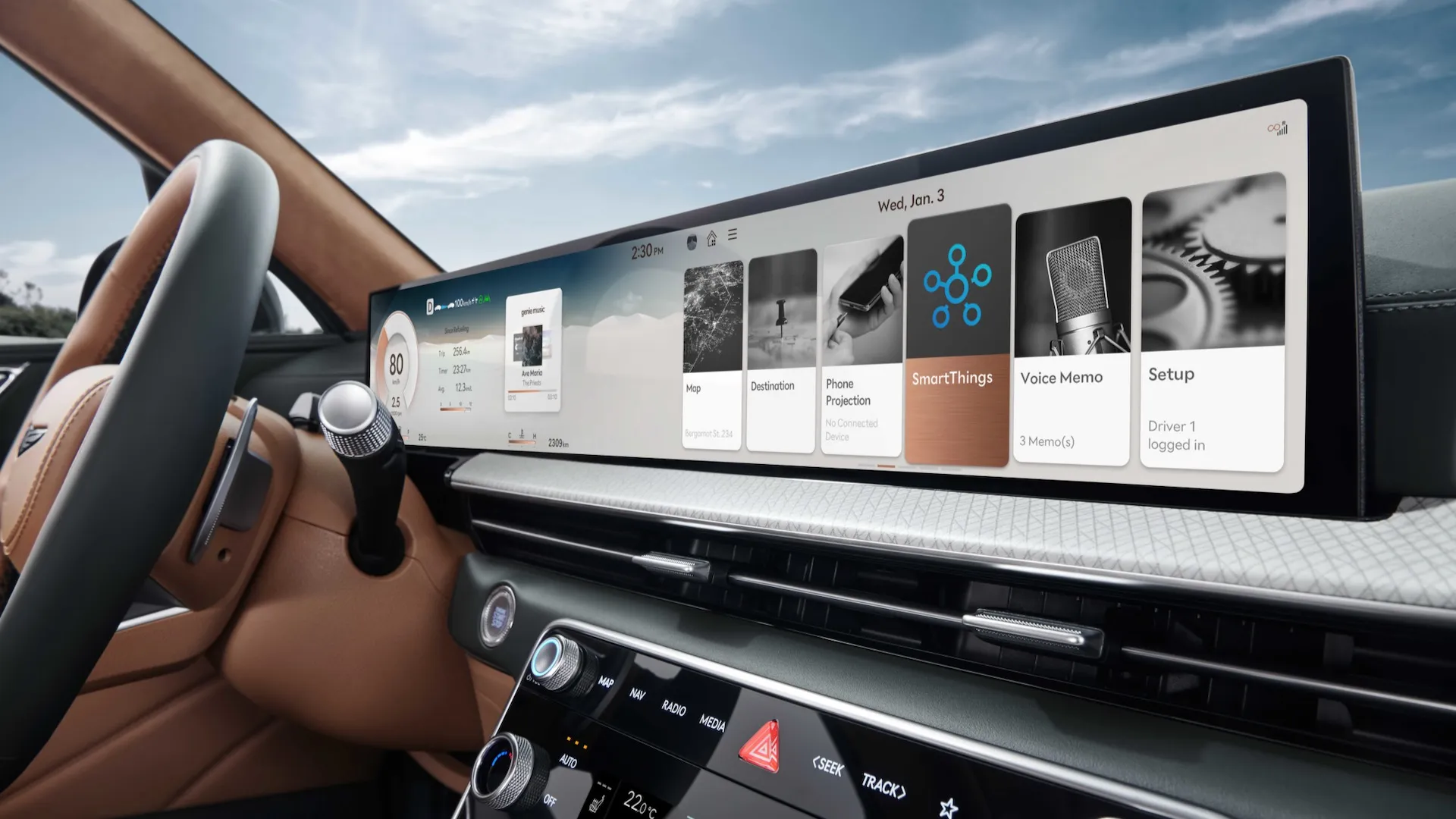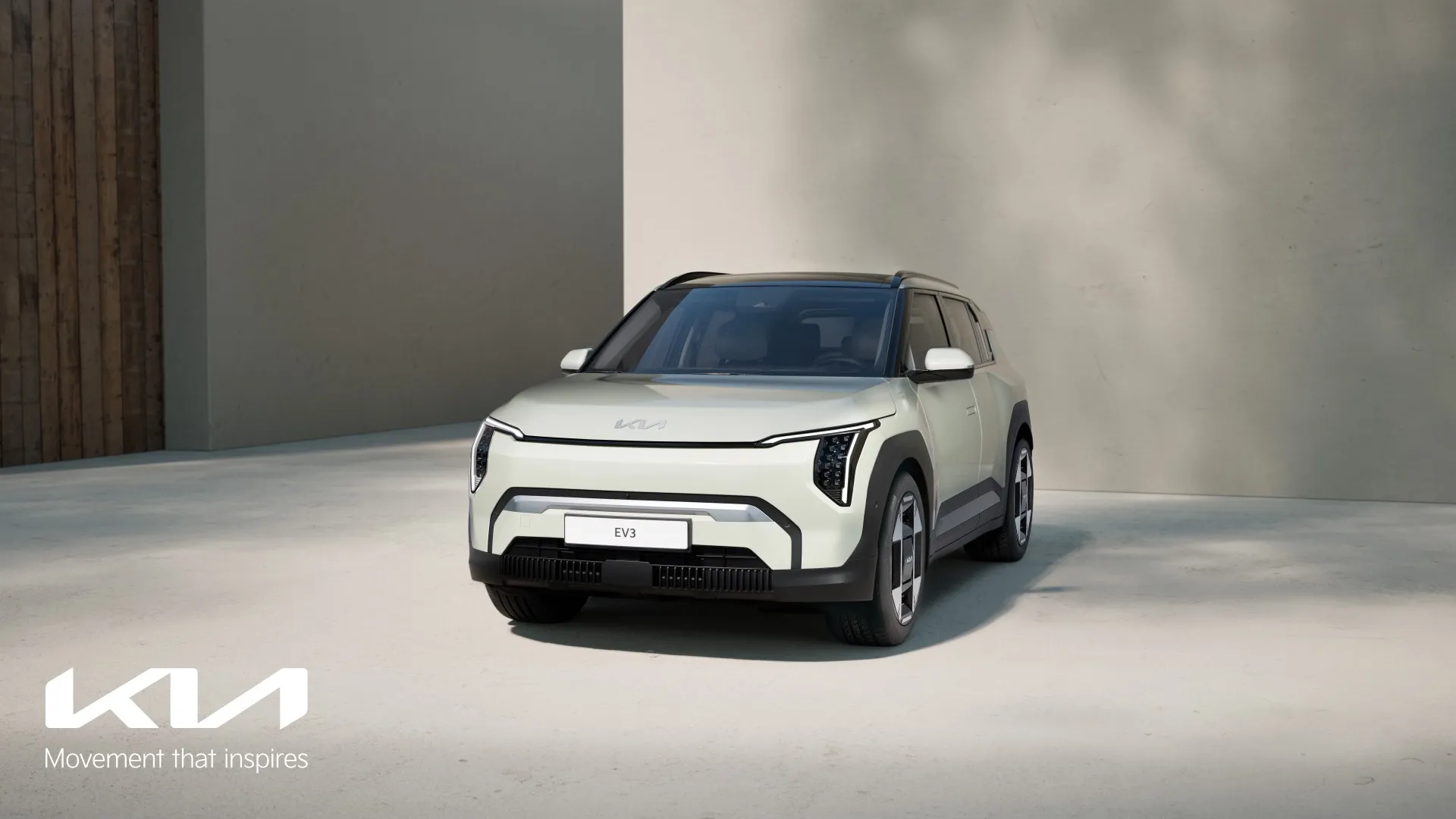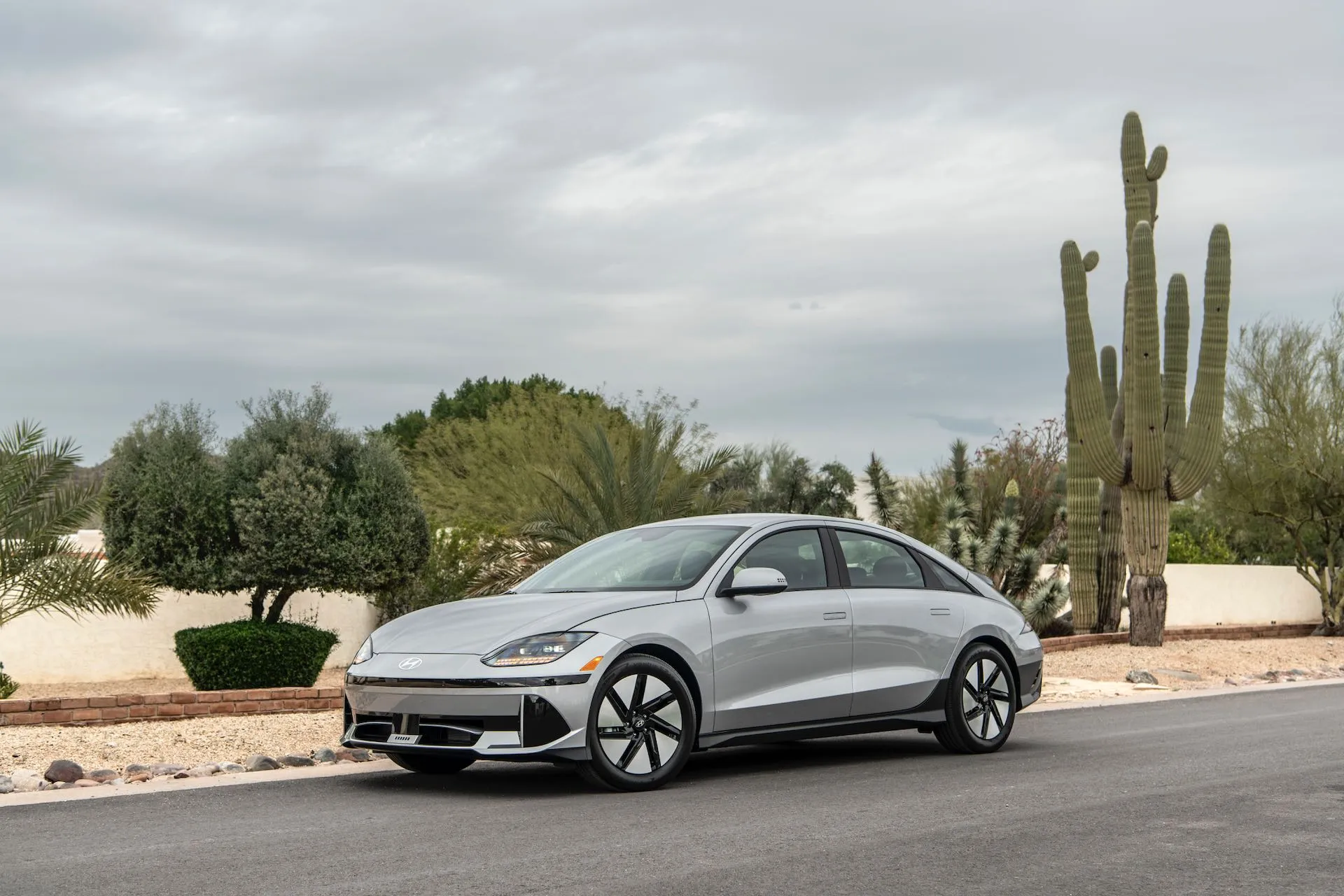Amid uncertainty about the future of the Tesla Supercharger network, rival charging networks see an opportunity to grow.
Tesla CEO Elon Musk recently fired most of the Tesla Supercharger team, but has since reversed that move and attempted to hire people back. Tesla has also made it clear that it will continue the buildout of whatever new infrastructure is in process, but may still shift way from further fast-paced growth of the Supercharger network. That, reports Politico, creates an opening for other networks.
Those networks are now planning more charging stations and seeking to hire jilted Tesla employees, according to the report. For example, Atlanta-based EnviroSpark Energy Solutions hired “a dozen Tesla castaways” in the last month, and landed $15 million in funding in the days after the Tesla layoffs. The company started out installing chargers for Tesla before looking to create its own network.
Rendering of EnviroSpark EV chargers at at Waffle House
New York City-based Revel last week hired Tesla veteran Edward Noseworthy to lead its design and construction team, Politico notes. And EVgo vice president Sara Rafalson told Politico that the company was having “a lot of conversations with talent.”
Immediately after the announced of the Supercharger-related layoffs at Tesla, BP also announced that it was seeking to buy stranded sites from the charging network for its own use. The oil giant reportedly plans to spend $1 billion by 2030 to install over 3,000 chargers in the U.S.
Part of the motivation for this is to grab some of Tesla’s share of the $5 billion federal EV charging infrastructure push, Politico reports. Part of the Biden administration’s infrastructure law passed by Congress in 2021, this National Electric Vehicle Infrastructure (NEVI) program is slated to spend that money on road-trip fast chargers over five years.
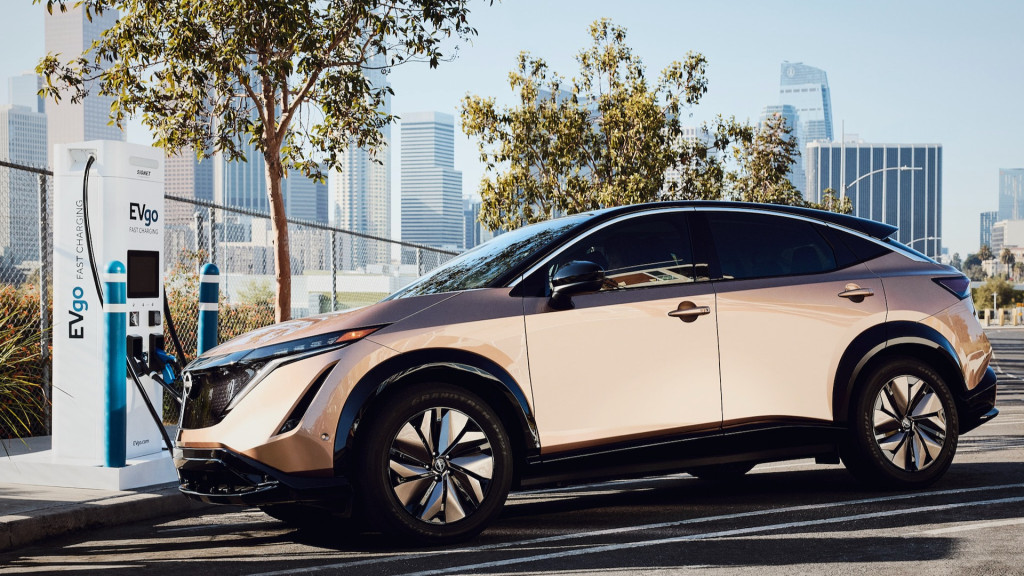
2023 Nissan Ariya at EVgo charging station
Installations for the NEVI-funded network started last year, with the first site opening in Ohio in December. NEVI is one of the factors related to how the national fast-charger network is filling in, but the buildout still has a long way to go.
Federal guidelines for the NEVI funding call for four 150-kw connectors every 50 miles. A 2023 analysis found that 1,104 new EV fast-charging stations will be needed to meet those parameters.

